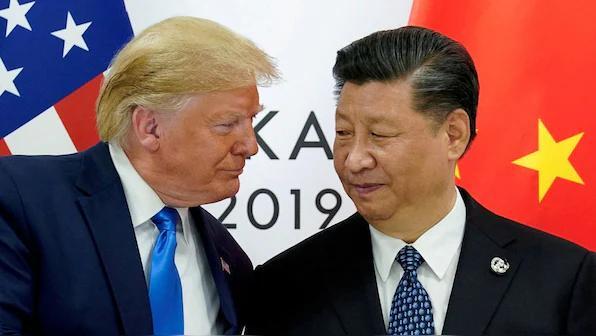
China Refuses to Join Denuclearisation Talks with US & Russia
In a move that is likely to escalate tensions in the global nuclear landscape, China has refused to join trilateral denuclearisation talks with the United States and Russia. The Chinese Foreign Ministry Spokesperson, Guo Jiakun, stated that the expectation of Beijing’s involvement in such talks is “neither reasonable nor realistic”. This rejection comes in the wake of US President Donald Trump’s call to include China in future negotiations on denuclearisation.
The development is significant, as it marks a clear divergence in stance between China and the US, two of the world’s largest economies. China’s decision to opt out of the talks has been viewed as a blow to the efforts aimed at reducing the threat of nuclear war, particularly in the wake of the increased tensions between the US and North Korea.
The news of China’s refusal to join the talks was first reported by Chinese state media, citing the Foreign Ministry Spokesperson’s statement. According to the statement, China’s decision was based on the fact that it and the US are not at the same level in terms of nuclear capabilities. This assertion is likely to be seen as a response to the US’s claims that China is not doing enough to address the global threat of nuclear weapons.
The development has been met with a mix of reactions from experts and analysts. While some have welcomed China’s decision, citing its ability to maintain its sovereignty and independence in decision-making, others have expressed concerns about the potential consequences of China’s refusal to join the talks.
One of the main concerns is that China’s decision may undermine the efforts aimed at reducing the threat of nuclear war. As the third largest nuclear power, China has a significant role to play in any global efforts aimed at denuclearisation. Its refusal to join the talks may send a wrong signal to other countries, particularly North Korea, which has been engaged in a tumultuous relationship with the US.
Another concern is that China’s decision may be seen as a response to the US’s growing military presence in the Asia-Pacific region. The US has been increasingly vocal about its concerns over China’s military expansion in the region, and China’s refusal to join the talks may be seen as a way to counterbalance the US’s influence.
Despite the concerns, China’s decision is likely to be seen as a reflection of its growing confidence in its military capabilities. China has been rapidly expanding its military presence in recent years, and its refusal to join the talks may be seen as a way to assert its sovereignty and independence.
The development is also likely to have significant implications for the global economy. China is one of the world’s largest economies, and its refusal to join the talks may have significant consequences for global trade and investment. The US and China have been engaged in a trade war in recent months, and China’s refusal to join the talks may be seen as a way to pressure the US to soften its stance.
In conclusion, China’s refusal to join trilateral denuclearisation talks with the US and Russia is a significant development that has significant implications for global security and the economy. While some have welcomed China’s decision, citing its ability to maintain its sovereignty and independence, others have expressed concerns about the potential consequences of China’s refusal to join the talks.
As the world continues to grapple with the threat of nuclear war, it is essential that countries work together to reduce the threat of nuclear weapons. China’s refusal to join the talks may be seen as a setback, but it is also an opportunity for countries to re-evaluate their approach to denuclearisation.



